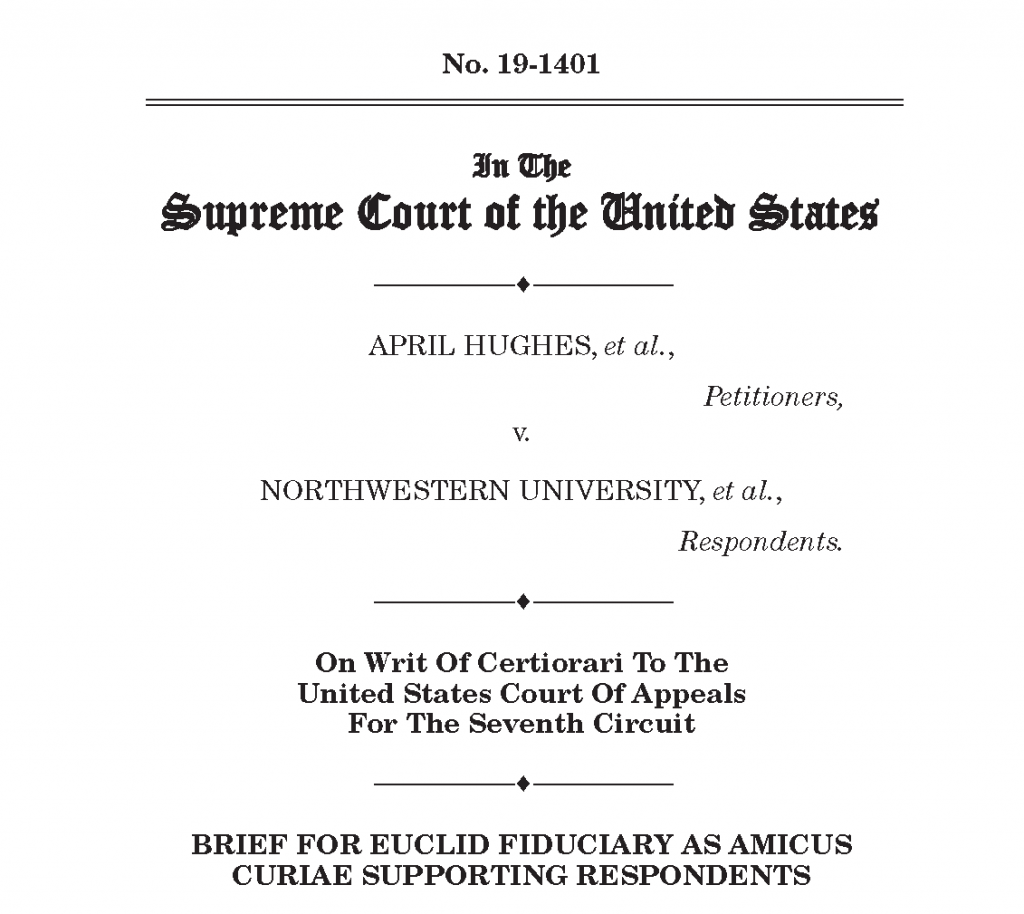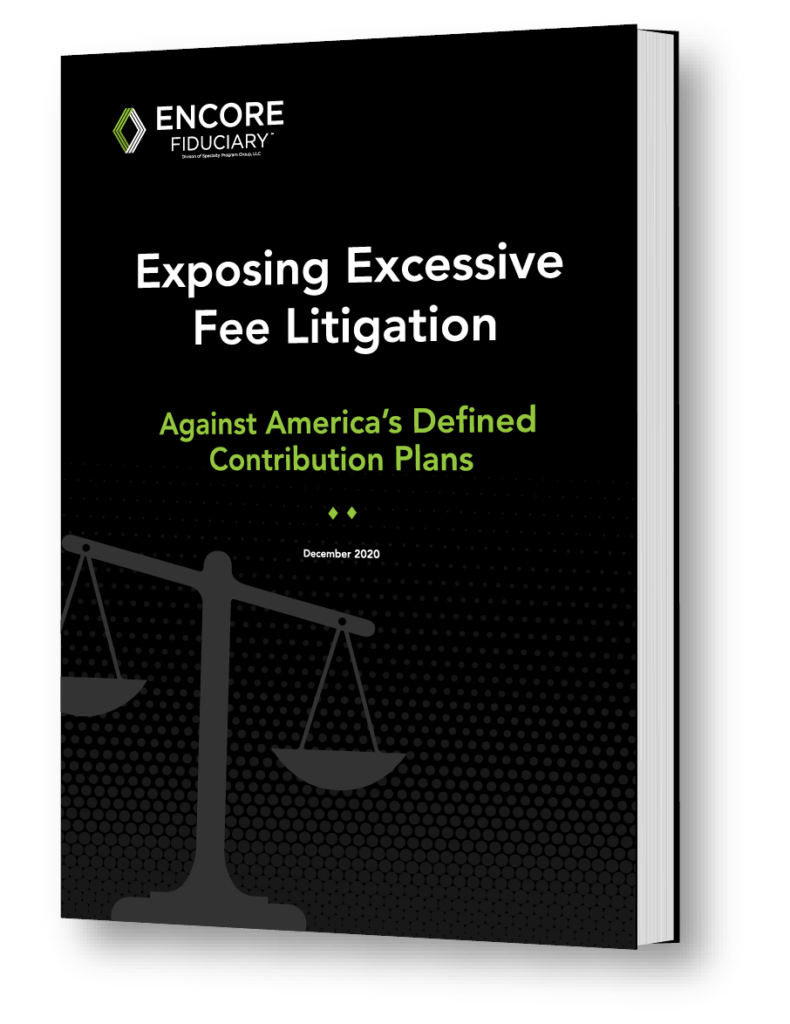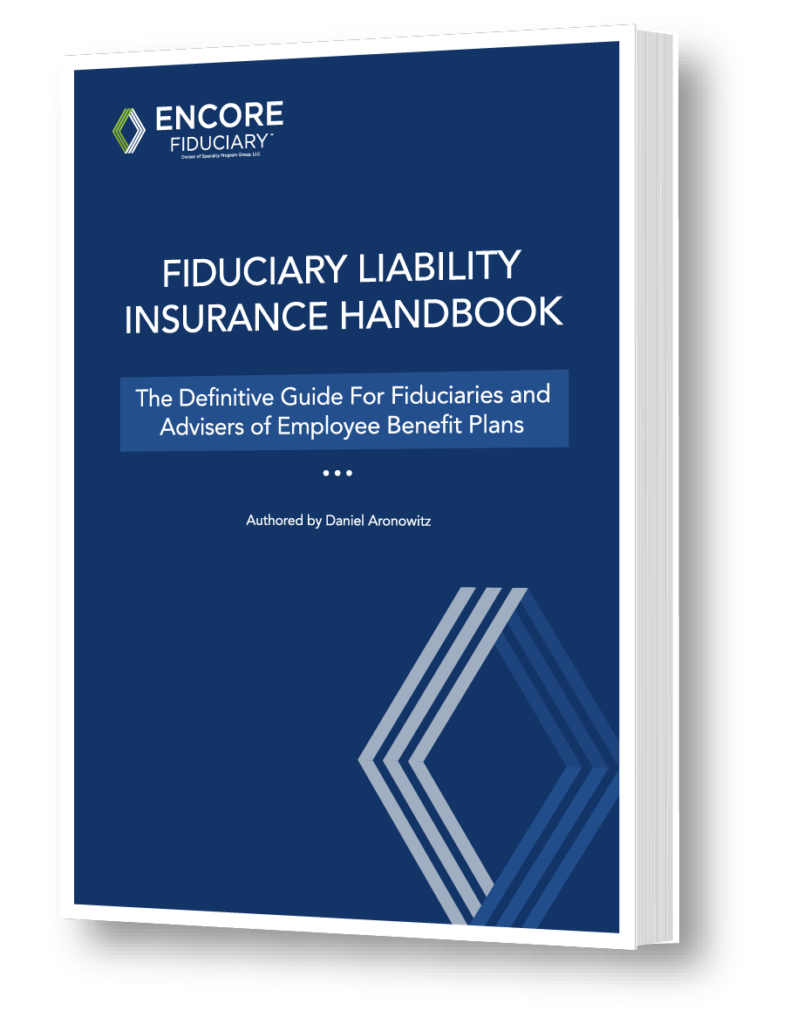
Fiduciary underwriting company Euclid Fiduciary filed an amicus brief in Hughes v. Northwestern case before the Supreme Court, urging the Court to provide guidance to district courts to use the same factors that inform fiduciary underwriting to weed out meritless cases alleging inaccurate and misleading claims against the fees and investments in retirement plans.
Euclid Fiduciary filed an amicus brief in Hughes v Northwestern University, et al., No. 19-1401, the most important case in the nearly fifty-year history of the Employee Retirement Income Security Act (ERISA). We took this extraordinary step to ensure that the unique perspective of fiduciary liability underwriters, who underwrite fiduciary best practices every day, was presented to the Supreme Court. Whereas Northwestern, other amici, and even TIAA itself filed briefs to explain that the fees paid for TIAA recordkeeping and investment options were not imprudent, Euclid added a crucial perspective that would otherwise be missing from the discourse. Euclid demonstrated that even when courts use careful and context-based review of the complaints, they are being prejudiced into allowing cases to proceed to discovery based on the many filed complaints with inaccurate and misleading claims and faulty benchmarks. Euclid demonstrated to the Court that many of the misleading claims can be rebutted at the initial stage of the case based on Department of Labor mandated fee and investment disclosures that are available to participants. These fee disclosures and more accurate benchmarks – what Euclid labeled as more than just apples-to-apples, but McIntosh-to-McIntosh comparisons – are exactly what fiduciary underwriters use every day to underwrite fiduciary best practices. And this more accurate information and proper fee benchmarking must be used by district courts to weed out the many meritless cases being filed against prudent sponsors of quality defined contribution plans.
By way of background, a group of plaintiff law firms have filed over 300 purported excessive fee cases in the last five year as part of their business model to drive huge settlements and attorney fees. As Euclid demonstrates in its amicus brief, the cases are often based on inaccurate facts and misleading comparisons to inappropriate benchmarks. These distorted claims of excessive fees mislead and prejudice district courts to allow cases to proceed to expensive discovery, after which plaintiff law firms can pressure plan sponsors to settle even illegitimate cases. Euclid explained to the Court how fiduciary underwriters analyze fiduciary best practices and how district courts can adopt similar techniques to give closer scrutiny to dismiss implausible cases.
Euclid’s approach focuses on Department of Labor mandated fee disclosures provided to every plan sponsor and plan participants, which are available to district courts and often cited in complaints. Although these disclosures contain accurate fee information with the exact recordkeeping and investment fees, plaintiffs often mislead courts with false claims of exaggerated fees. This tactic, in turn, frequently sways courts to permit meritless claims to proceed in discovery, giving plaintiffs a shot at a windfall settlement.
Euclid’s brief gave multiple examples of this problem. In the AT&T case, the district court denied four successive motions to dismiss in a case alleging an “excessive” recordkeeping fee of $61 per participant. After expensive discovery, the undisputed record showed that the recordkeeping fee was one-third the size of the false allegations, and that AT&T had negotiated a “most favored customer” provision that guaranteed the lowest possible fee that Fidelity provides to similarly sized plans. Upon a full evidentiary record, the plan’s disclosures showed that all four complaints filed in the case contained false allegations. But the district court had deferred to the complaint as “true” and forced AT&T to spend untold defense costs to defend its plan fiduciaries against false allegations.
In another example, Euclid reviewed the case against Walgreens, who offered super low-cost six basis points target-date funds from Northern Trust, a fee so low that it is only offered to large institutional plans. But plaintiffs alleged that the plan fiduciaries were imprudent because the funds purportedly under-performed benchmarks cherry-picked by plaintiff lawyers. The benchmarks, however, were misleading, because the Northern Trust target date funds were intentionally designed with a conservative investment strategy with less stock allocated to the portfolio. Conservative investment allocations cannot be compared to more aggressive and risky investments. But the district court allowed the case to proceed on faulty benchmarks alleged by plaintiffs. The prejudice is real, because recent press reports indicate that Walgreens paid a $13.5m settlement, including several million in plaintiff attorney fees, in a case without any merit, likely to avoid the high cost of defense and litigation risk.
This hijacking of ERISA fiduciary law must stop. In the face of these false and misleading allegations, Euclid advocated that the Court give guidance to district courts to do exactly what the fiduciary underwriters at Euclid do every day: use DOL-mandated fee disclosures and proper benchmarks to ascertain the real plan fees and investments in the full context of the plan’s investment mix before allowing plaintiff law firms to harass plan sponsors with expensive and harassing litigation. Courts can and should make use of plan disclosures and public financial information when analyzing excessive fee lawsuits. Plaintiff firms cry wolf that they do not know the processes followed by plan fiduciaries, and should be entitled to deference to anything they allege in their complaints. But this is no excuse for distorting the actual data.
Euclid submitted a compelling argument to the Supreme Court that if underwriting decisions to ensure fiduciaries can be made based on plan disclosures and public financials, so too can motions to dismiss be decided on this same information. Plaintiff law firms should not be permitted to omit or distort this information in their complaints, and district courts should be encouraged to rely on plan disclosures and proper benchmarks, and to stop allowing meritless cases to be prosecuted against prudent fiduciaries and plan sponsors, as the cases against AT&T and Walgreens demonstrate.
Euclid urged the Court to build on the fiduciary standard of the Dudenhoeffer employer stock drop case to weed out meritless claims. Namely that, the pleadings standard and factors that inform it should focus on three elements: (i) that no prudent fiduciary would have agreed to the allegedly excessive fees based on (ii) a comparison of a reliable benchmark of materially identical investments and services with (iii) disproportionately lower fees during the relevant time period. This more rigorous pleading standard relies on more than just apples-to-apples benchmarks, but requires the more refined context of McIntosh-to-McIntosh comparators. As Euclid demonstrated, if fiduciary underwriters can evaluate fiduciary best practices based on DOL fee disclosures, district courts can also perform the same analysis at the initial stage of the case in order to weed out meritless cases.
To learn more, download the full amicus brief or visit our website at www.euclidfiduciary.com.

